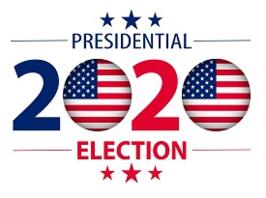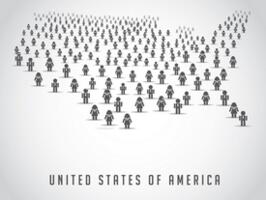Americans Still Aren’t Ready to Forgive All Student Loans
Presidential hopeful Bernie Sanders is calling for wiping out all outstanding student loans, and just over half of his fellow Democrats like the idea. Other Americans don’t.

Presidential hopeful Bernie Sanders is calling for wiping out all outstanding student loans, and just over half of his fellow Democrats like the idea. Other Americans don’t.

Democrats and many in the media have been highly critical of the July 4 celebration President Trump hosted in Washington, DC, but voters strongly share the rosy view of America and the U.S. military that the president honored that day.

In the first Democratic presidential debates, Sen. Kamala Harris of California defended forced busing back in the 1970s as a civil rights triumph and criticized former Vice President Joe Biden for racial insensitivity for once opposing the policy.

Since the Democratic debates in June, the tide seems to have receded for the party and its presidential hopefuls.
In new polls, only Joe Biden leads President Donald Trump comfortably.

Forty-two percent (42%) of Likely U.S. Voters think the country is heading in the right direction, according to a new Rasmussen Reports national telephone and online survey for the week ending July 2.

So-called “antifa” protesters are in the news again, following the recent violent beating of a gay journalist in Portland, Oregon. Voters are less critical of the antifa movement these days, but they still tend to think it’s just looking for trouble.

In surveys last week, this is what America told Rasmussen Reports...

A century ago, newspapers employed more than 2,000 full-time editorial cartoonists. Today, there are fewer than 25. In the United States, political cartooning as we know it is dead. If you draw them for a living and you have any brains, you're working in a different field or looking for an exit.

Joe Biden may be finding the going a little rougher in his own party, but he’s still the most successful Democrat in a hypothetical 2020 matchup with President Trump.

"Partisan gerrymandering is nothing new," writes Chief Justice John Roberts near the beginning of his opinion in Rucho v. Common Cause. "Nor is frustration with it." The question is what, if anything, federal courts ought to do about it. The answer the chief justice and the four other Republican-appointed justices have endorsed, journalists have been reporting, is nothing.

Most Americans still think highly of Independence Day AKA the Fourth of July and recognize what major historical event it celebrates.

When tracking President Trump’s job approval on a daily basis, people sometimes get so caught up in the day-to-day fluctuations that they miss the bigger picture. To look at the longer-term trends, Rasmussen Reports compiles the numbers on a full-month basis, and the results for Trump’s presidency can be seen in the graphics below.

President Trump’s political opponents are cutting him no slack following his historic step across the border into North Korea this past weekend to further peace talks with dictator Kim Jong Un.

I will not be in much of a celebratory mood this coming Independence Day.

Happy Fourth of July!
We have reason to celebrate.
The Fourth honors the founding of America. It's the anniversary of the day in 1776 that the Declaration of Independence was approved.

The Trump administration wants to restore the citizenship question to the U.S. Census. Democratic leaders are strongly opposed, and the U.S. Supreme Court has put the issue on hold. But support for such a question remains strong among Americans.

The Congressional Budget Office has just released its mid-year update on the federal fiscal situation, and it portends a debt avalanche. But don't bother to tell Sens. Bernie Sanders and Elizabeth Warren that. They're busy advocating tens of trillions of dollars in new federal spending.

"The liberal idea has become obsolete. ... (Liberals) cannot simply dictate anything to anyone as they have been attempting to do over the recent decades."

Forty-two percent (42%) of Likely U.S. Voters think the country is heading in the right direction, according to a new Rasmussen Reports national telephone and online survey for the week ending June 27.

Former Vice President Joe Biden’s still the leader among the 2020 Democratic presidential hopefuls following last week’s debates, although he’s lost notable ground among voters in his own party. Bernie Sanders, the clear number two in previous surveys, now runs even with Senators Kamala Harris and Elizabeth Warren.